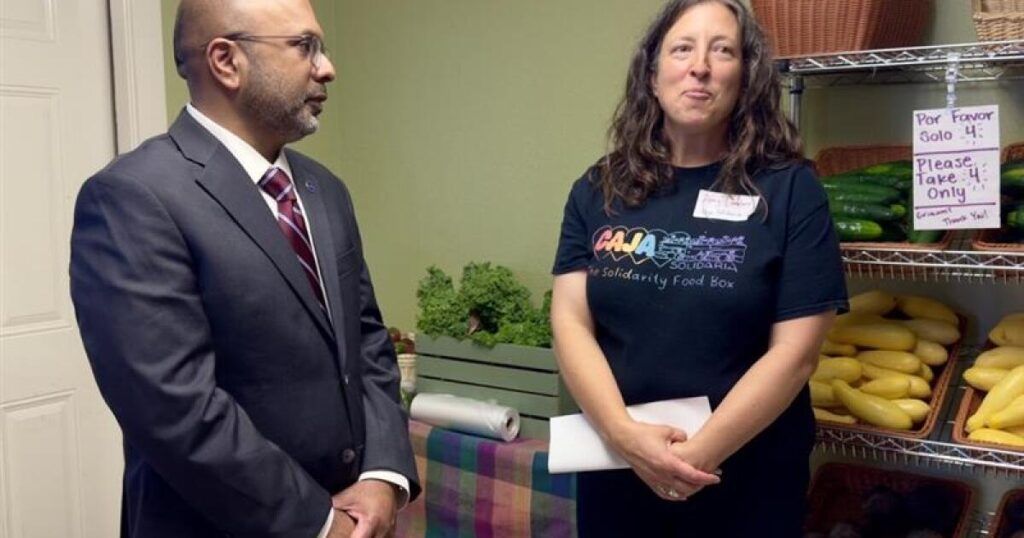North Carolina’s Innovative Medicaid Pilot Faces Uncertain Future
The future of an innovative Medicaid pilot program in North Carolina hangs in the balance as state lawmakers deliberate over budget allocations. Health and Human Services Secretary Dev Sangvai remains hopeful that funding will be secured to continue the program, which has already made a significant impact on nearly 30,000 low-income residents by providing essential services such as food, housing support, and transportation.
During his recent visit to Western North Carolina, Sangvai emphasized the importance of the Healthy Opportunities Pilot program (HOP). This pioneering initiative is the first in the United States to utilize federal Medicaid funds for nonmedical services aimed at improving health outcomes, including produce prescriptions, transportation to medical appointments, legal assistance for housing issues, and home repairs. The program faces termination on July 1 if it is not included in the state budget.
While in the region, Sangvai visited several nonprofits, including the Hendersonville-based Caja Solidaria, a food pantry that benefits from HOP support. Sangvai noted, “We are advocating for our elected leaders to reconsider how we’re gonna pay for HOP. And I’m gonna be honest, they’re listening to us.”
The pilot program spans 18 counties in Western North Carolina and the Qualla Boundary, supporting families like Elizabeth Johnson’s, who received air filters and vacuums after her daughter’s asthma diagnosis. Johnson shared, “We’ve seen a lot of health benefits. For my husband and myself as well. Even though our daughter is the one that’s the recipient, the whole family is benefiting.”
Caja Solidaria alone assists over 500 families, sourcing food from local suppliers like Tommy Riley of Riverview Farm in Henderson County. Riley expressed the program’s significance, stating, “I might’ve quit by now,” citing financial challenges post-Hurricane Helene. He added, “But seeing the impact that it’s had on the community, and the joy from the people that receive it…it’s just beautifully orchestrated.”
Riley’s farm, which supplies eggs and vegetables to the pantry, would suffer financially if the program ends, potentially leading to job losses: “If Caja goes away, three employees go away,” he noted.
Mental Health Services Highlighted
In addition to visiting Caja Solidaria, Sangvai stopped by a nearby nonprofit, Love and Respect, which has faced increased service demands since the hurricane. This “no barriers” shelter provides free access to mental health care, enrollment in HOP, and NC Medicaid assistance.
Lexie Wilkins, executive director of Love and Respect, highlighted ongoing mental health challenges: “Although the storm has come and gone and things on the outside look like they may have returned to normal, there’s still a lot to a lot of work to be done, especially in the mental health realm… Those are the wounds and the scars that are not visible with the eye.”
The organization benefits from Hope4NC, a $12.4 million state investment supporting crisis outreach across 25 counties affected by Hurricane Helene. Since September 2024, Hope4NC has delivered over 11,300 counseling services and answered more than 7,300 helpline calls.
Sangvai underscored the necessity of continued support, stating, “We need to continue to do what we’re doing. We continue to focus on all the things we talked about, including the behavioral health infrastructure, and making sure individuals have access to mental health care when they need it.” As he returns to Raleigh, Sangvai aims to secure funding for both mental health care and programs like HOP.





